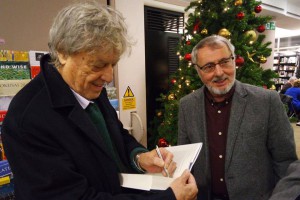Ceilings by Zuzana Brabcová, translated from the Czech by Tereza Novická, Twisted Spoon Press, 2025
In “The Aleph,” Jorge Luis Borges’s eponymous narrator attempts to describe the titular object—a point in space that contains all other points—but finally articulates that he cannot truly do so: “Mystics, faced with the same problem, fall back on symbols: to signify the godhead, one Persian speaks of a bird that somehow is all birds; Alanus de Insulis, of a sphere whose center is everywhere and circumference is nowhere; Ezekiel, of a four-faced angel who at one and the same time moves east and west, north and south . . . Perhaps the gods might grant me a similar metaphor, but then this account would become contaminated by literature, by fiction.” Borges is far from the only writer to fear that fiction might distort truth or one’s simple lived experience. In the way of Barthes, who wrote that “incoherence seems to me preferable to a distorting order,” Borges’s attempt to translate the aleph functions as a useful thought experiment: How does one coherently translate an experience or text that is fundamentally incoherent? Should one even try?
Ceilings, Zuzana Brabcová’s second novel to be posthumously translated into English, represents an aleph of sorts. It is about a woman named Emička (or Ema) who has been committed to a psychiatric hospital, but it is also about Emička’s imaginary brother, Ash, who is committed to the same hospital—because he both is and is not Ema herself. As for the hospital, it’s certainly a hospital, but it also shapeshifts to become an aquarium, Ema’s childhood home, and an IKEA. Plenty of readers will take the easy route and try to interpret these inconsistencies as reflections of Ema’s unstable mental state, but Brabcová disrupts this reading by refusing to settle on a clear narrator. She shifts between the third person and Ema’s/Ash’s perspective, sometimes all within a single paragraph. Thus, while perhaps not as untranslatable as the aleph, Ceilings provides no shortage of challenges: its circuitous syntax, its treatment of time, its slippery subject matter. READ MORE…



